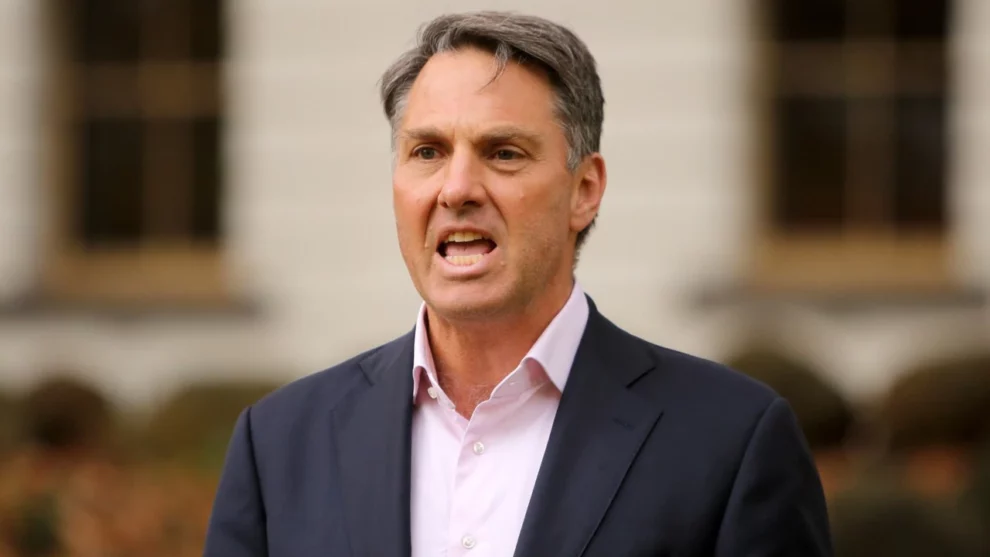In a role once occupied by Labor giants, Richard Marles has stood out for all the wrong reasons in the Albanese government.
Richard Marles, however, fits none of those categories. He has the job because Albanese, unusually for a Labor leader, is from the Left faction and from NSW, meaning his deputy has to be from Victoria and the Right.
Marles is also defence minister — normally a place where weaker or lower-profile ministers can be hidden, and often reserved for those approaching the political departure lounge. But defence is now front and centre in policy debate, not just because of the perceived threat of China — or the bipartisan commitment to elevating our status as a vassal state to our imperial overlords in Washington — but because AUKUS represents the biggest industry policy decision in decades (remembering it includes funding American industry as well as our own) and a step-change in Australia’s position regarding nuclear power.
Even an astute, articulate and intelligent minister would be challenged by the development, implementation and, most crucially, selling of these issues. Marles ticks none of those boxes, a fact further exemplified by the government’s inability to convince even many within its own ranks that AUKUS represents either a worthwhile investment or a sensible strategy in relation to China.
Nor has Marles ever effectively addressed basic policy questions around AUKUS, such as those raised time and again by Malcolm Turnbull — specifically about the outsourcing of sovereignty to the US that the project represents, and why Australia did not pursue the cheaper, faster and more strategically coherent option of French nuclear submarines.
Turnbull’s questions go to the very heart of Australian defence policy and related issues such as non-proliferation and our role in the “Indo-Pacific”. Marles, in completely failing to address them, has left a gaping hole in Labor’s narrative of why we are committing to such a ludicrously expensive project with so few benefits. The impression Marles leaves is that he is so reflexively pro-American that he doesn’t even understand the basic argument about sovereign defence capabilities.
But if Marles can’t help it if he lacks the smarts to offer a coherent explanation of a significant shift in Australian defence policy, his lack of judgment is another matter. As my colleague David Hardaker has detailed, Marles seems bizarrely secretive about a trip to the US he undertook at the end of 2022, refusing to reveal the details of his playing a round of golf at one of the country’s most exclusive courses, the day after attending the opening of an office for Scale Facilitation, a Geelong company spruiked by Marles that was raided by tax authorities in June.
On a more prosaic and politically problematic level, Marles has been shown to have racked up $3.6 million in RAAF VIP flights — nearly half of which were domestic trips. The sum is far greater than when Peter Dutton was defence minister in the Morrison government. Marles refuses to detail why he took the flights, citing security reasons, but he appears to be using the RAAF flights to travel to Avalon Airport, much closer to his Geelong electorate than Melbourne’s main airport at Tullamarine, and to have taken one of the flights to watch the Matildas in the Women’s World Cup semi-final.
Marles should ask Bronwyn Bishop how this sort of thing goes down with the public — and why trying to dismiss it as in accordance with the rules doesn’t convince anyone.
If Marles’ own version of Choppergate does bring him undone, it would be a boon for Labor, enabling it to elevate Clare O’Neil to the deputy position. O’Neil, superior in every way to Marles, withdrew from the deputy leadership contest in 2019. We can only hope.
Source: MSN









